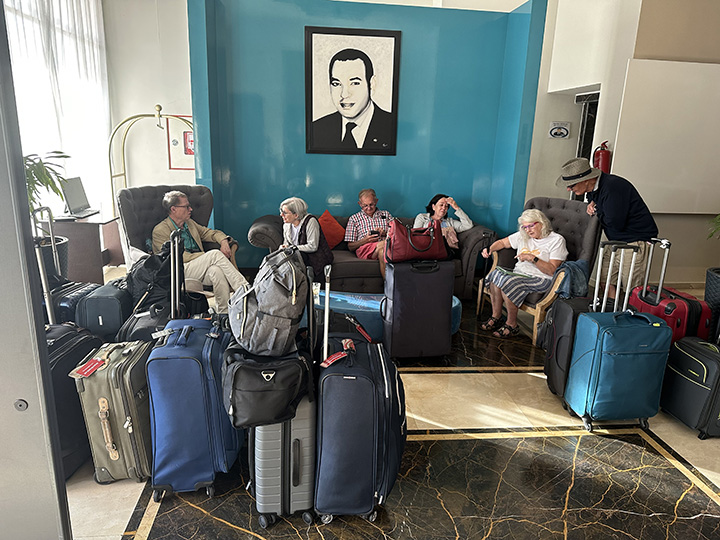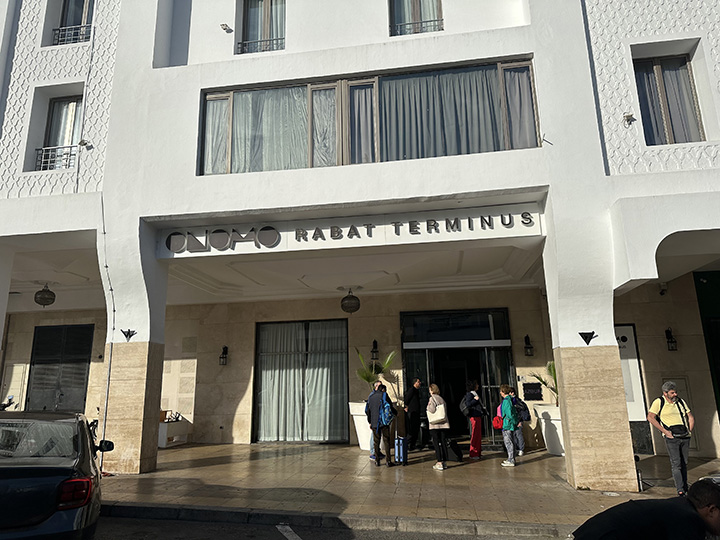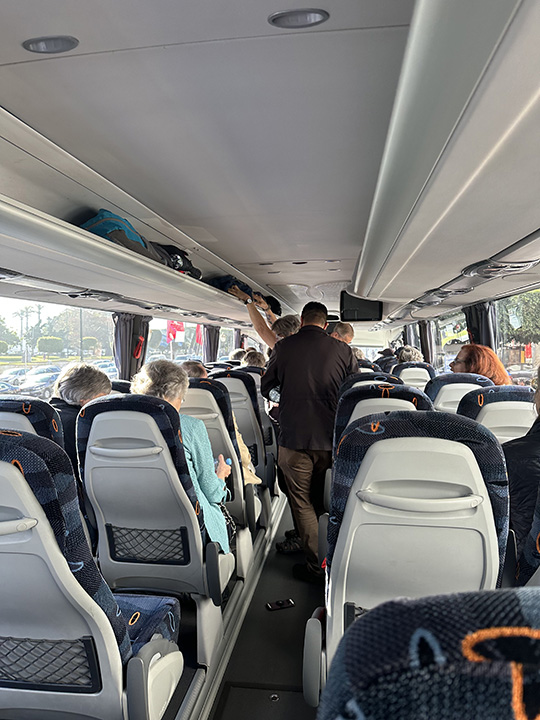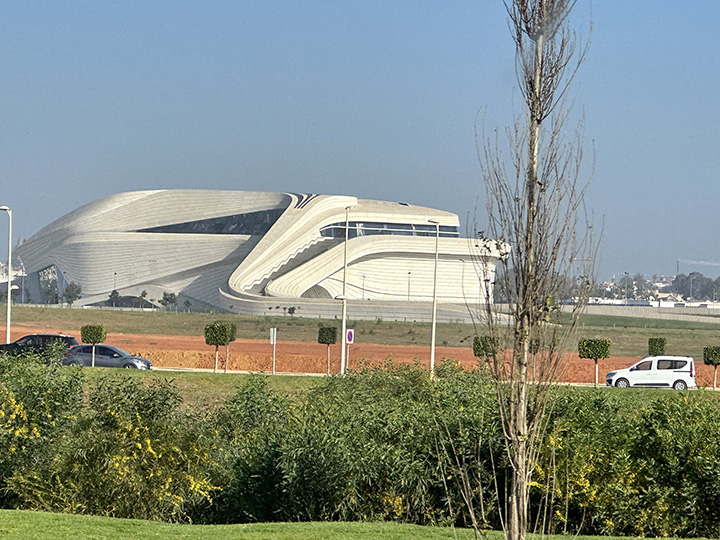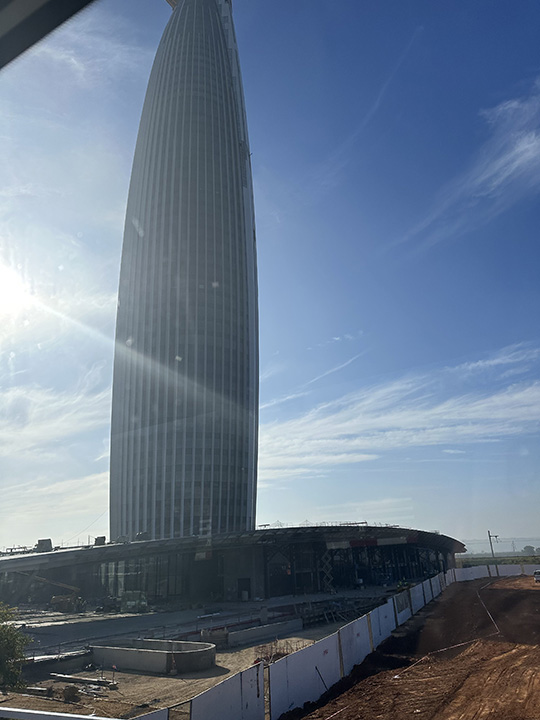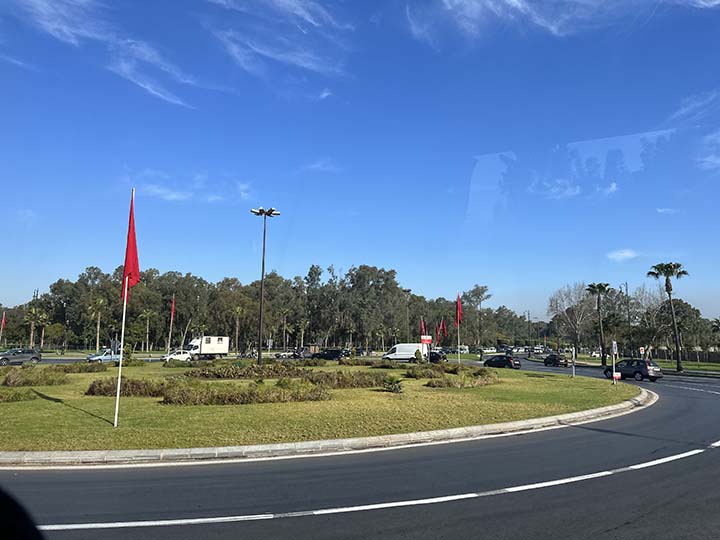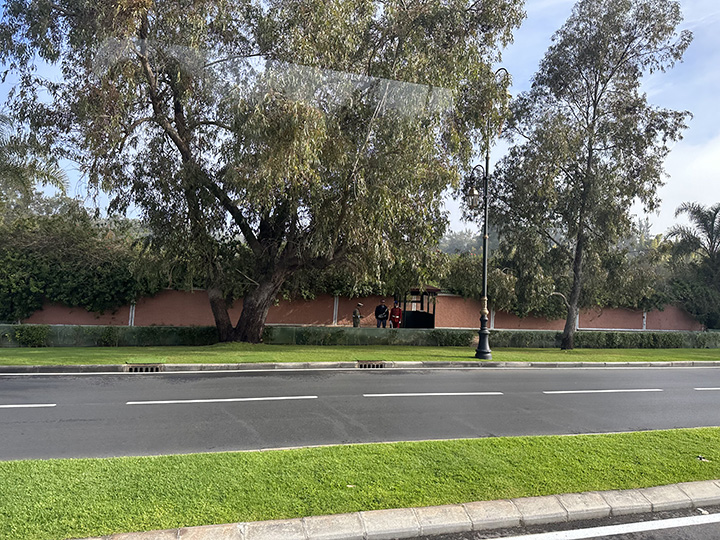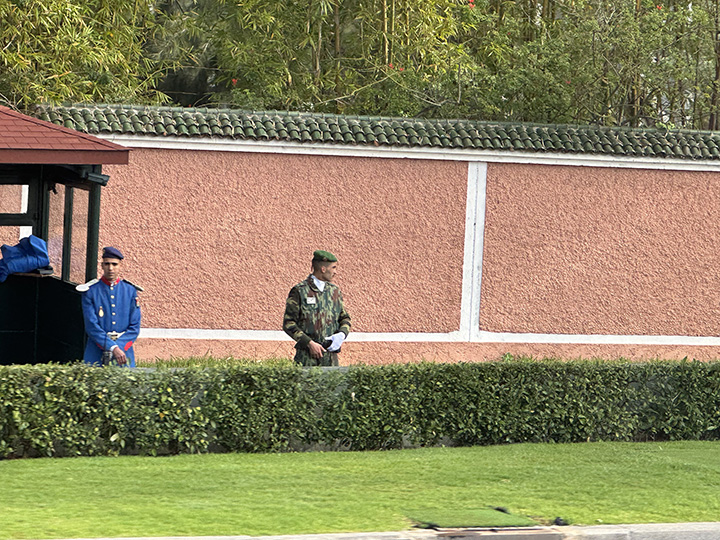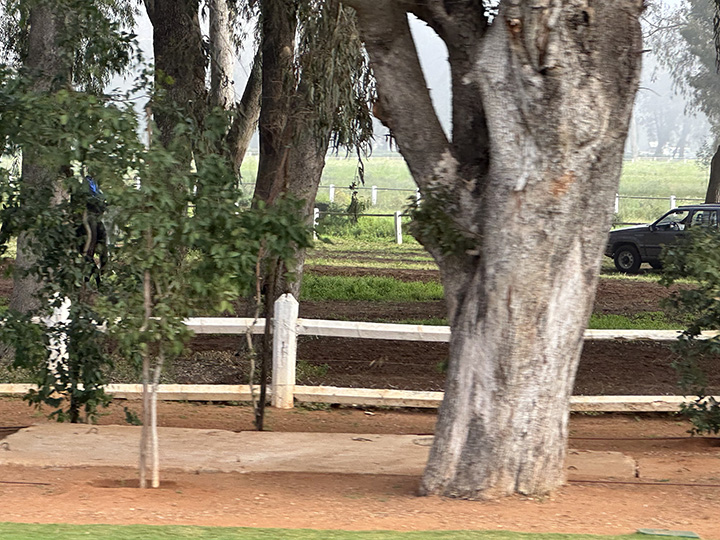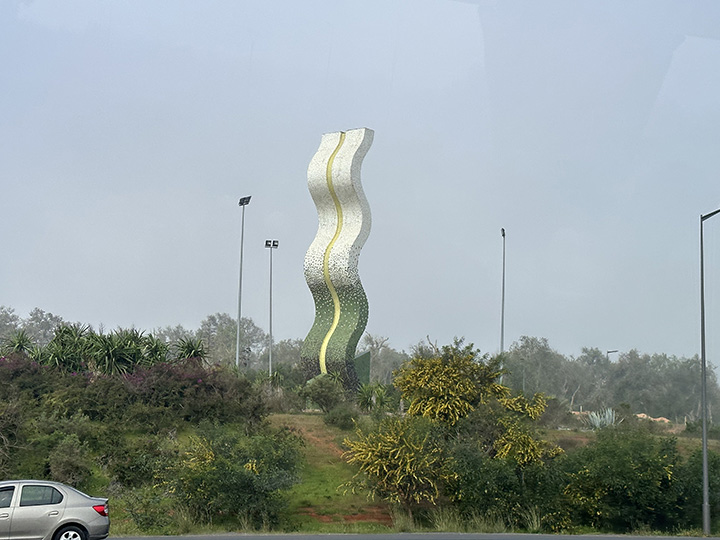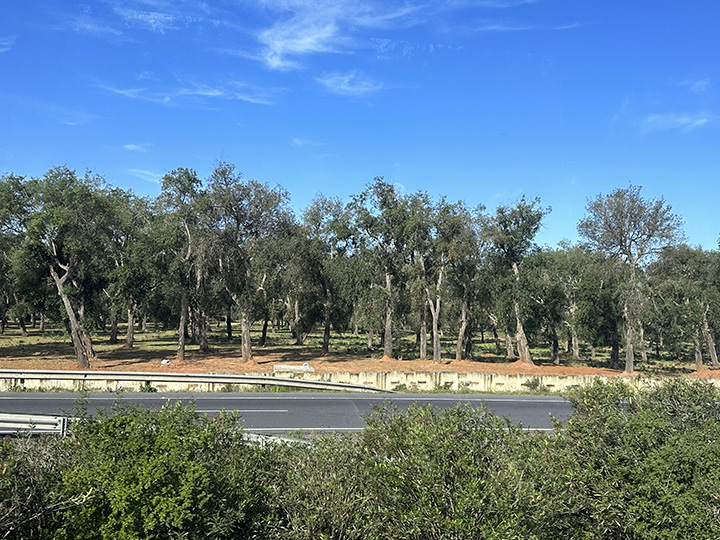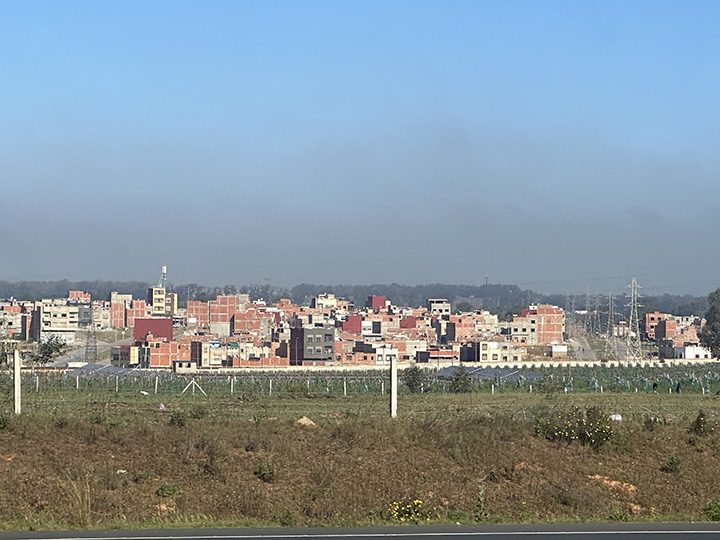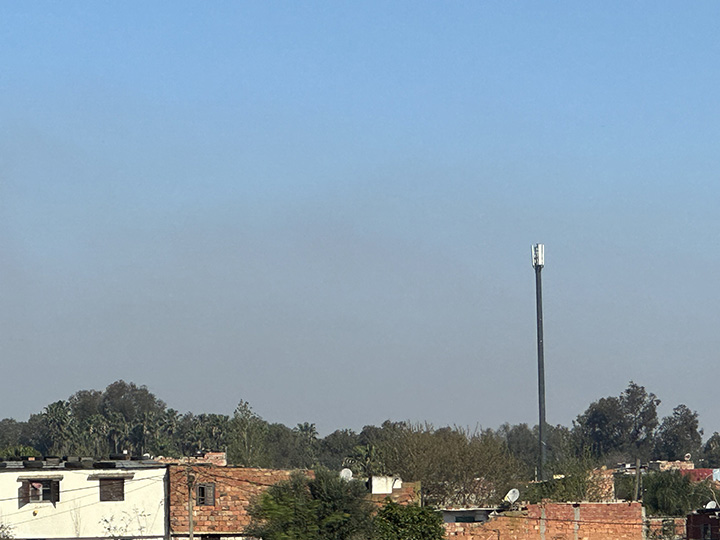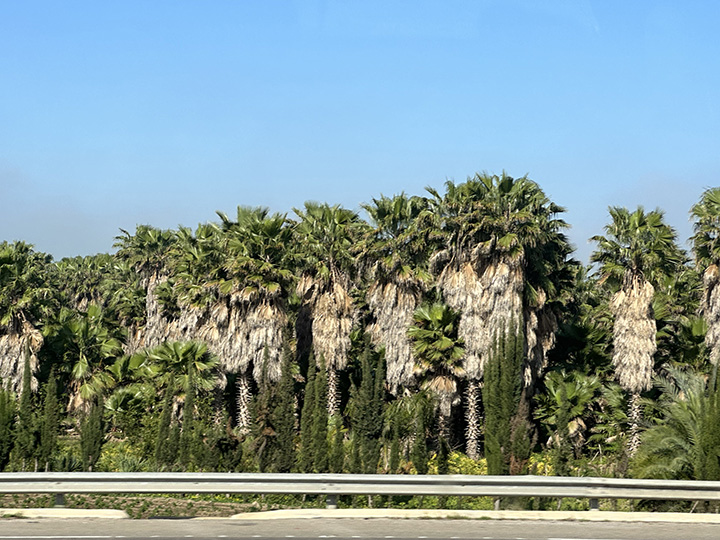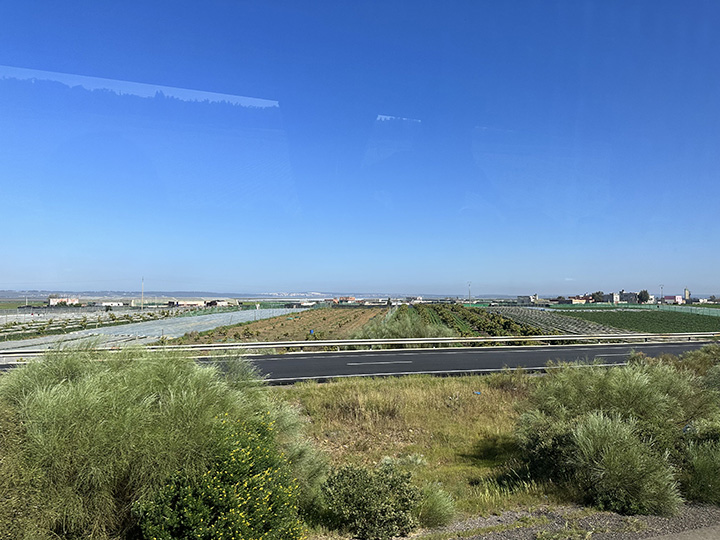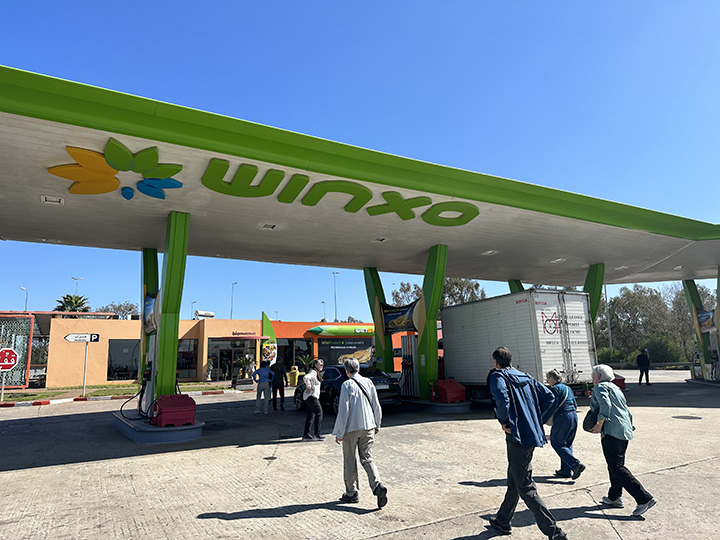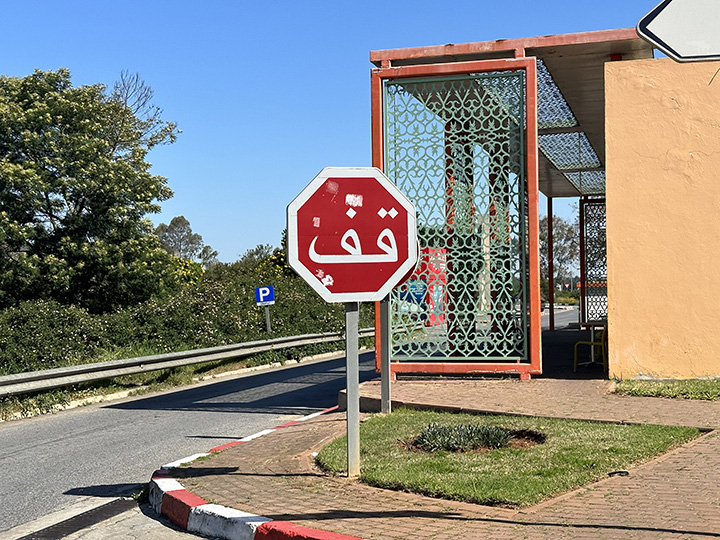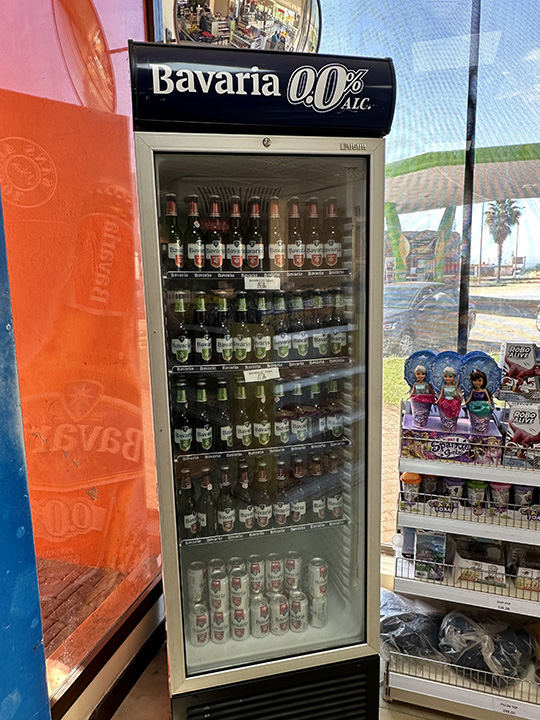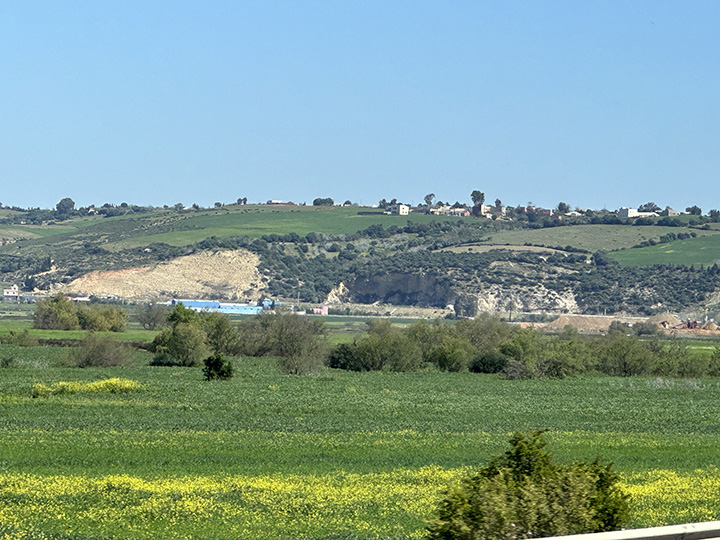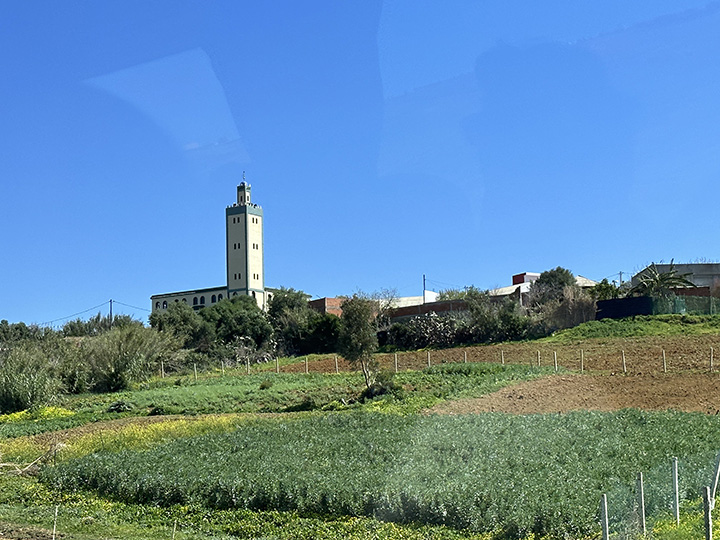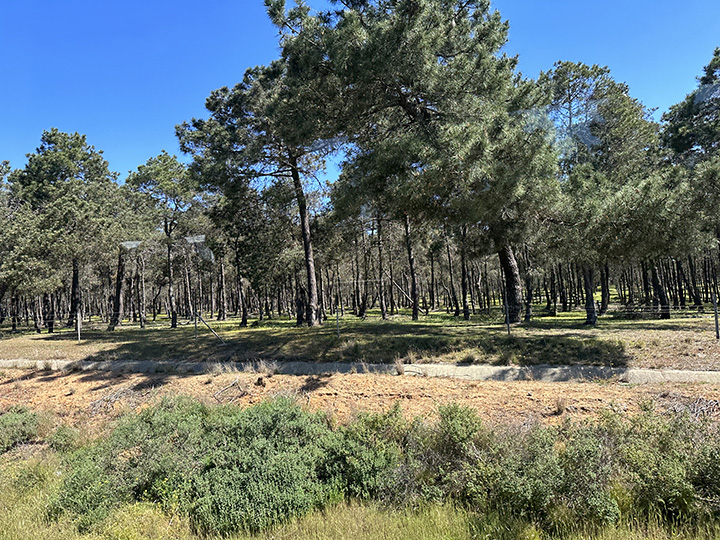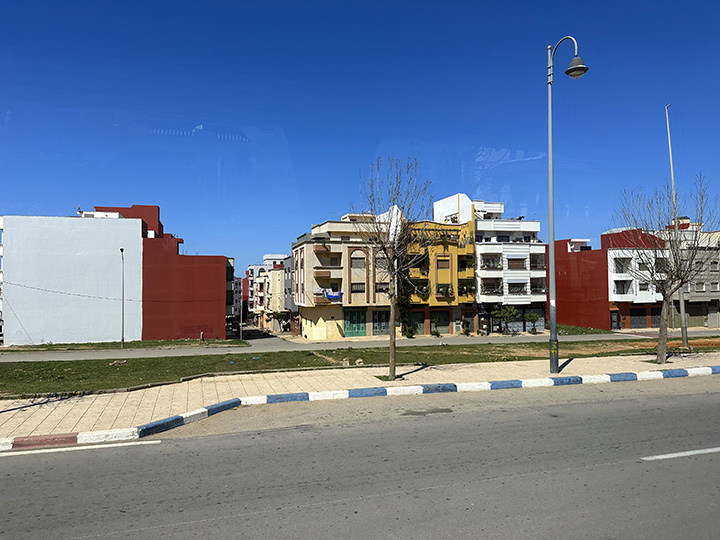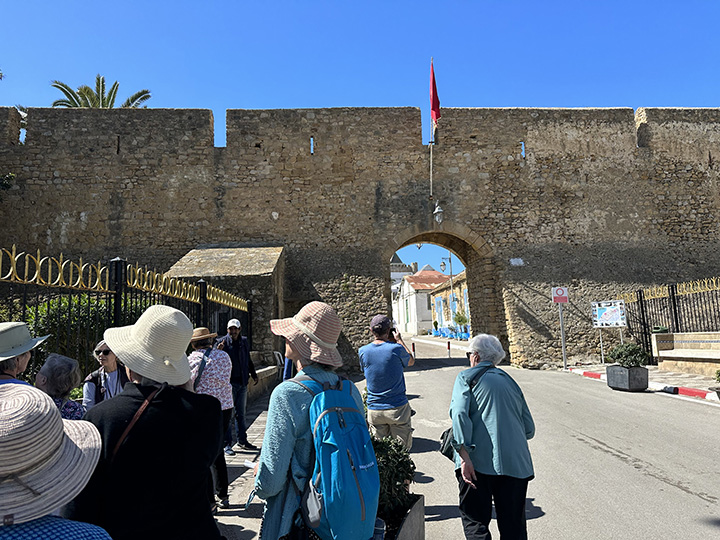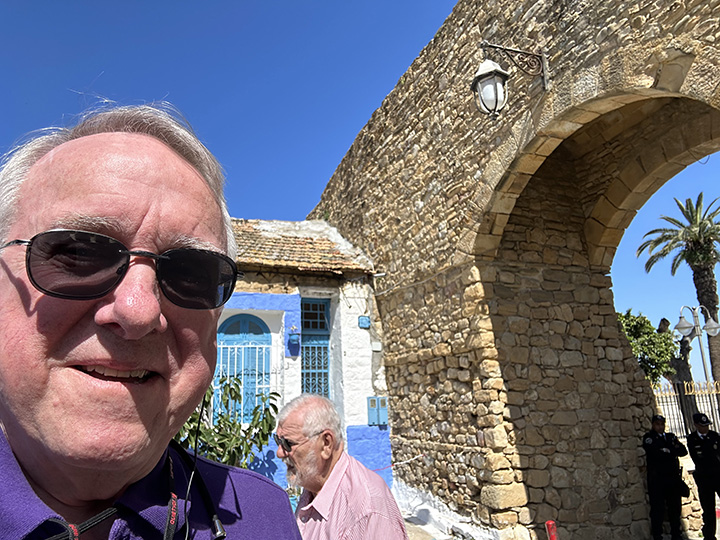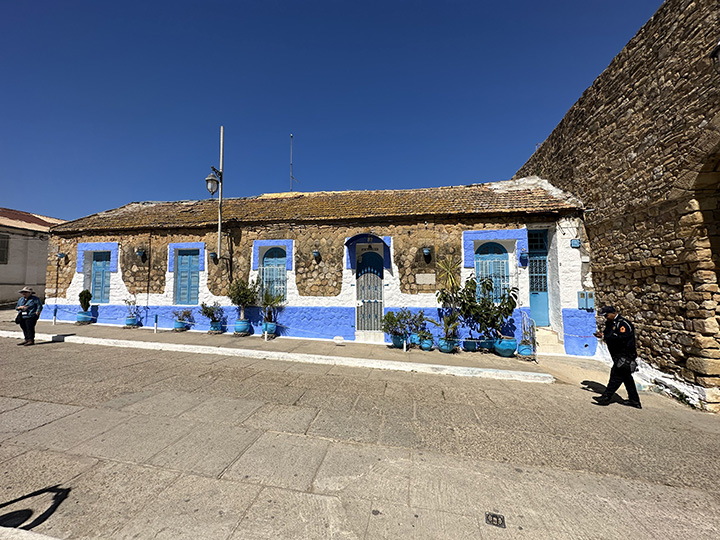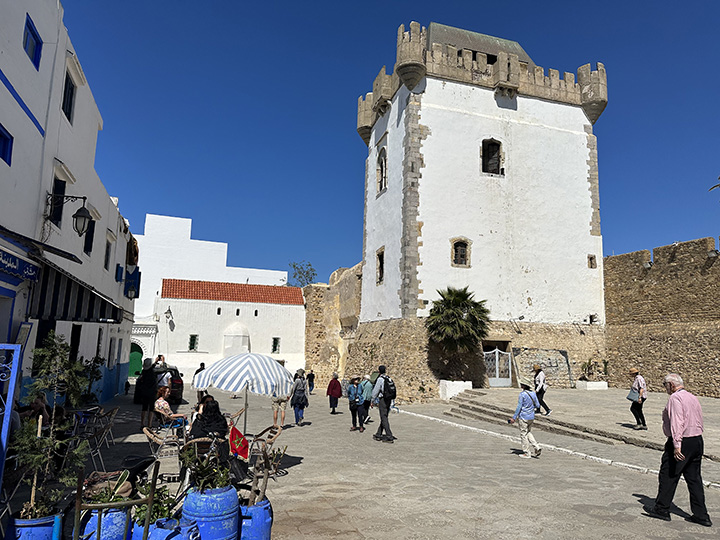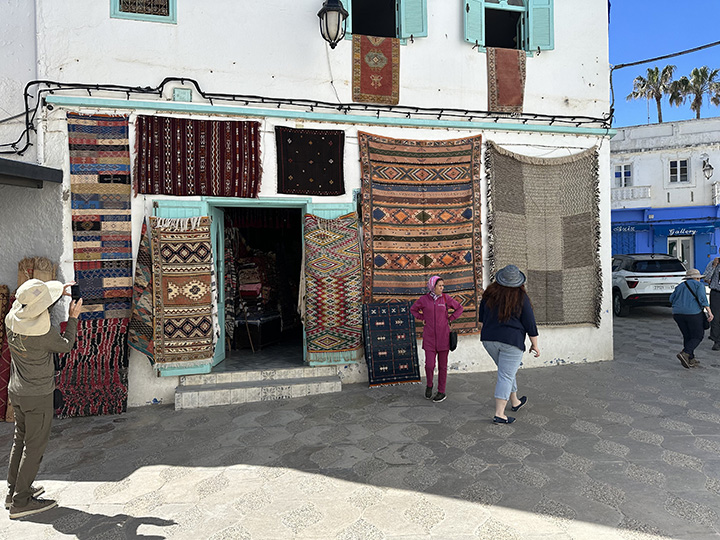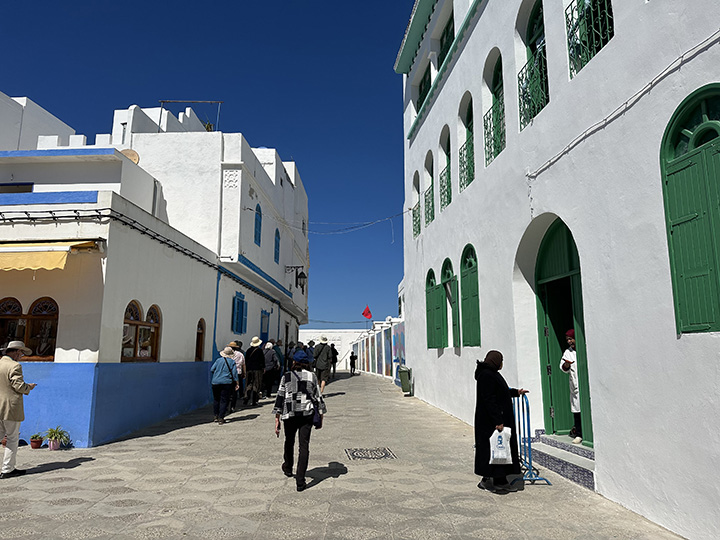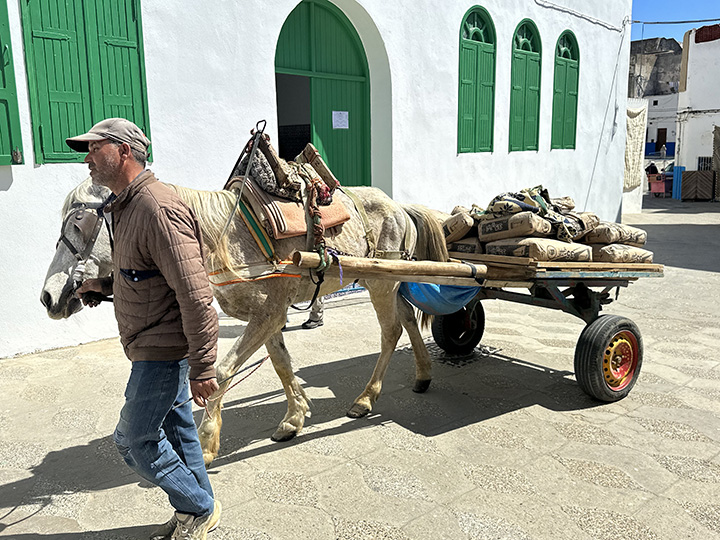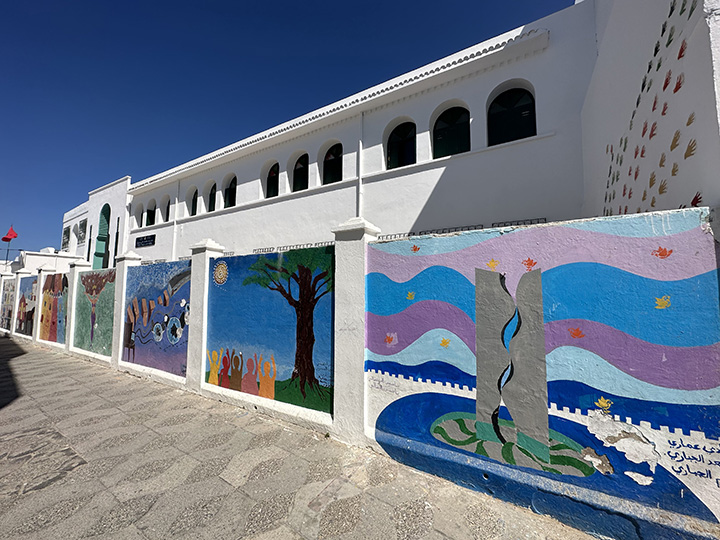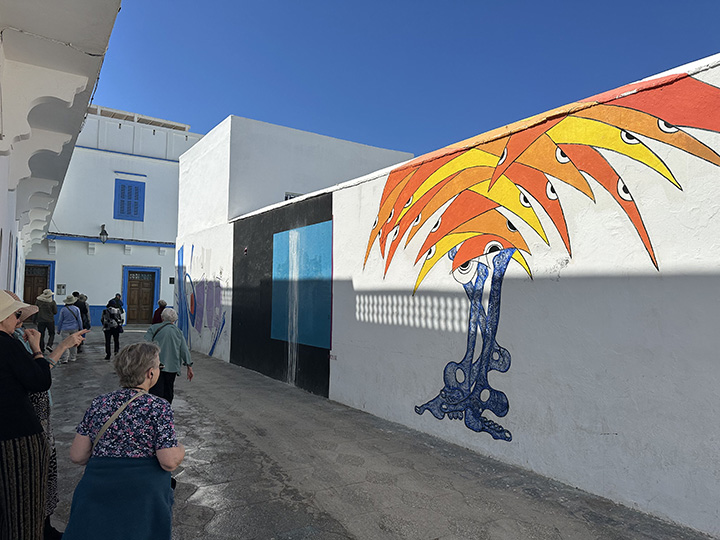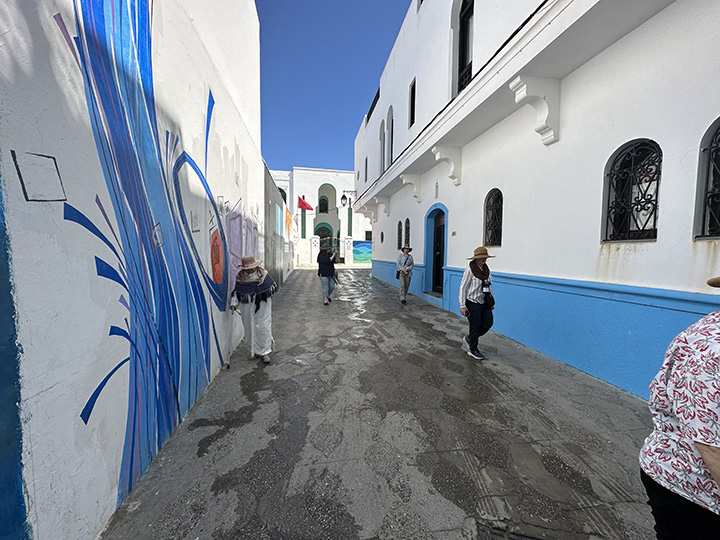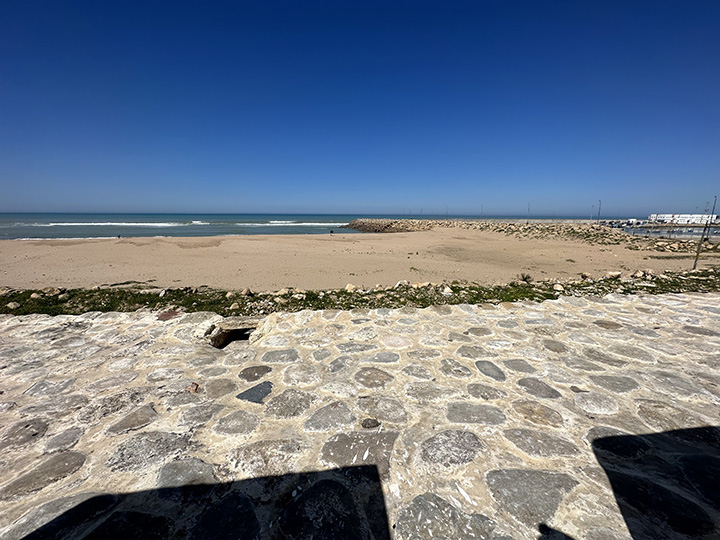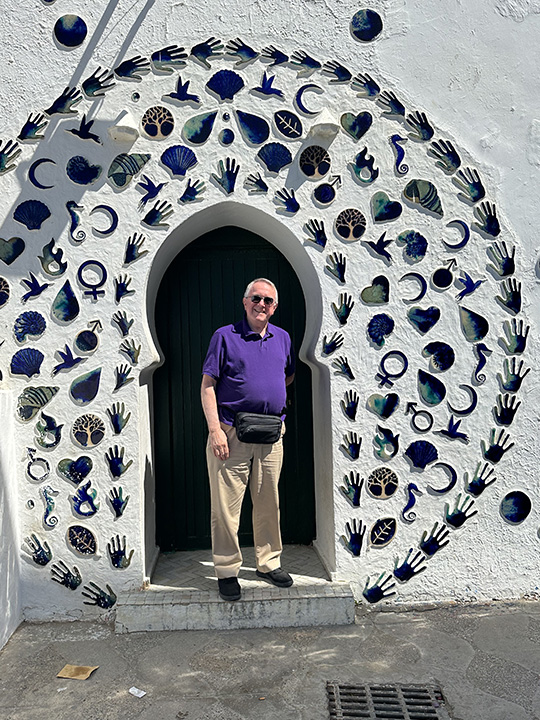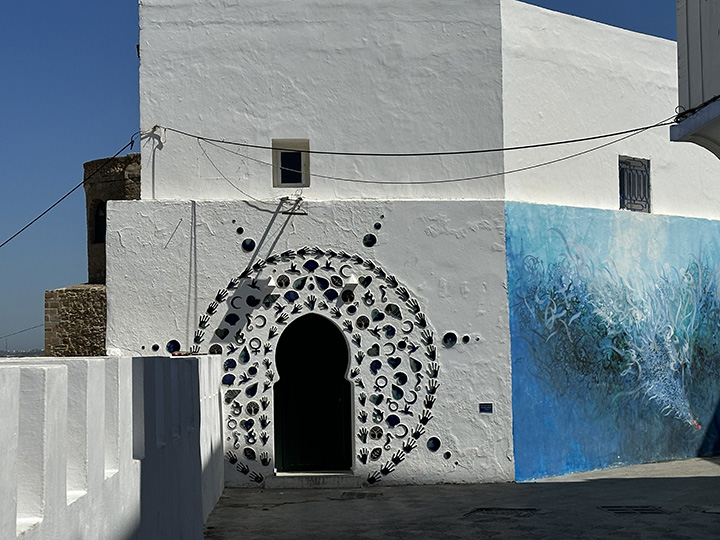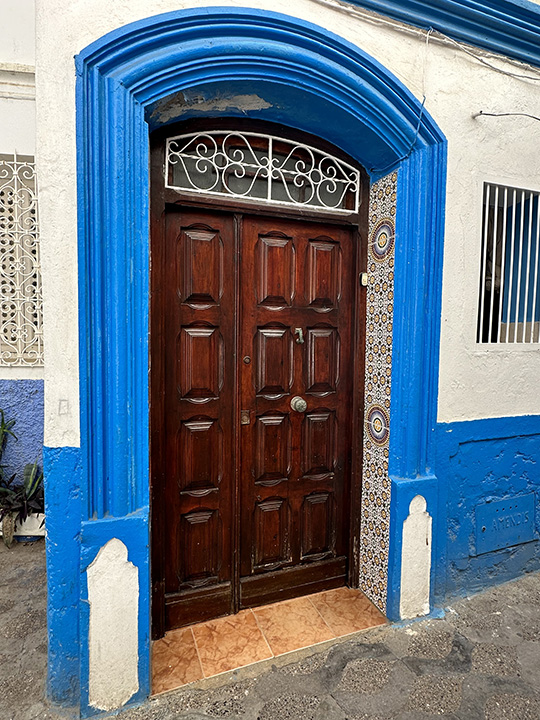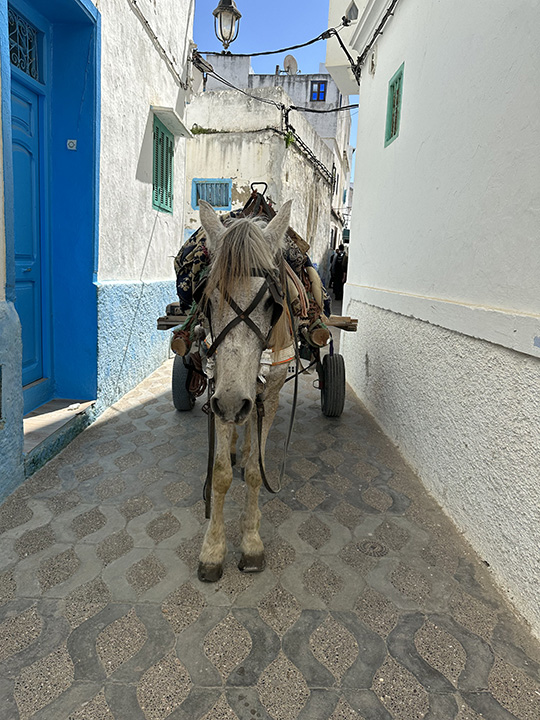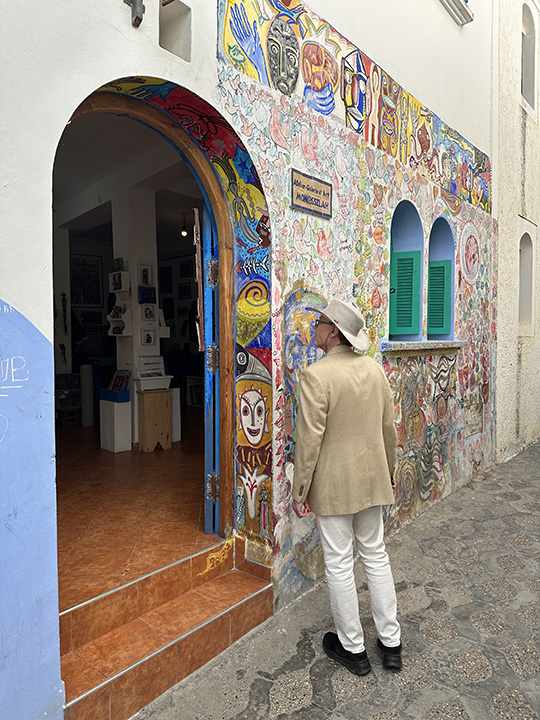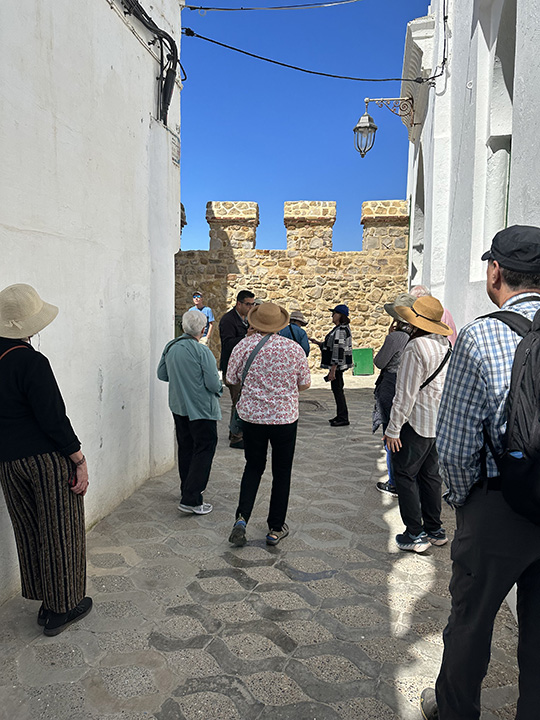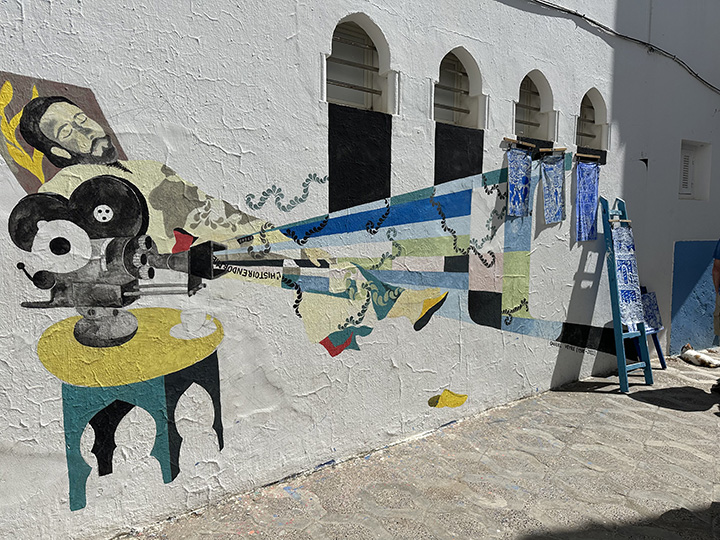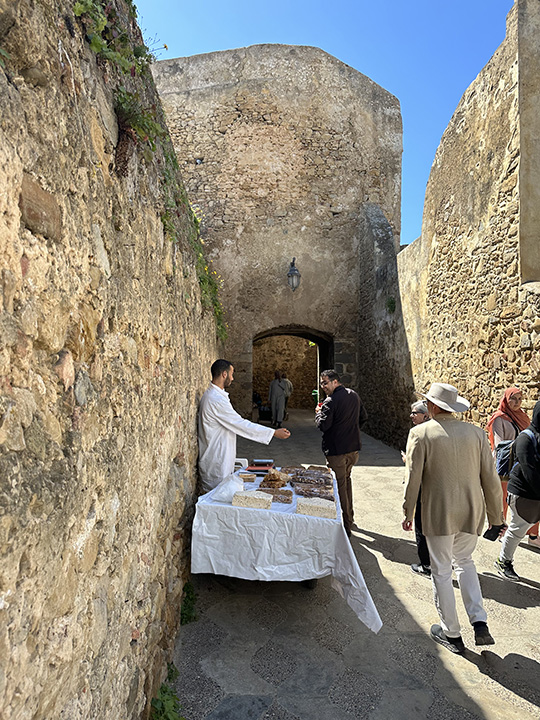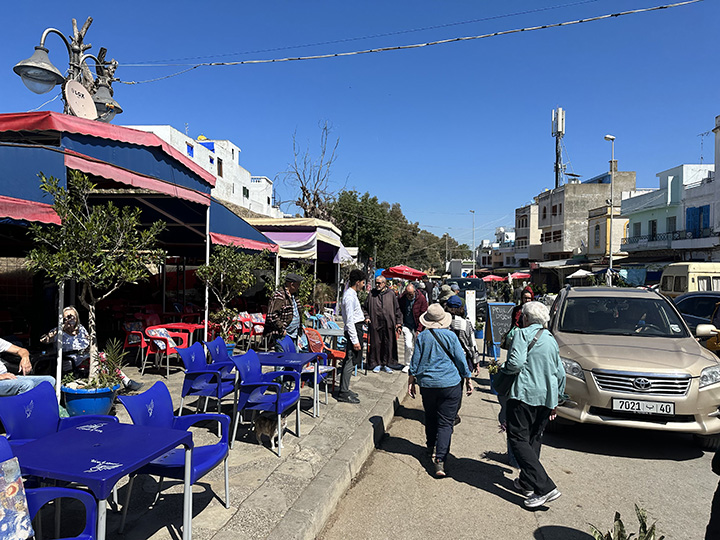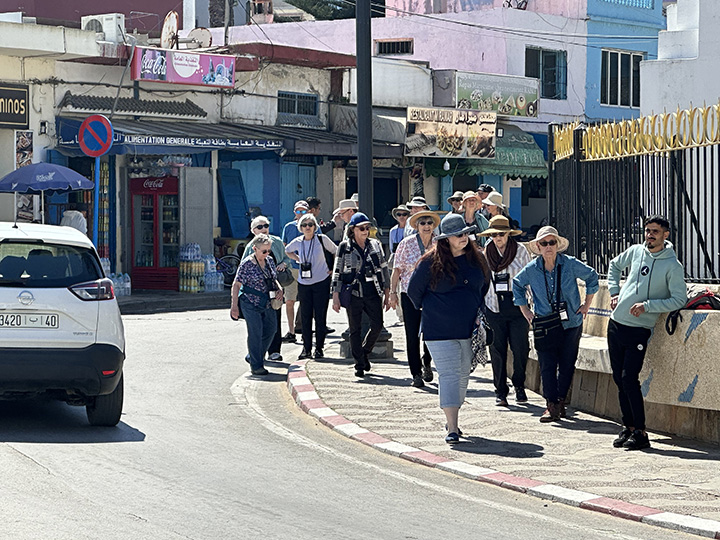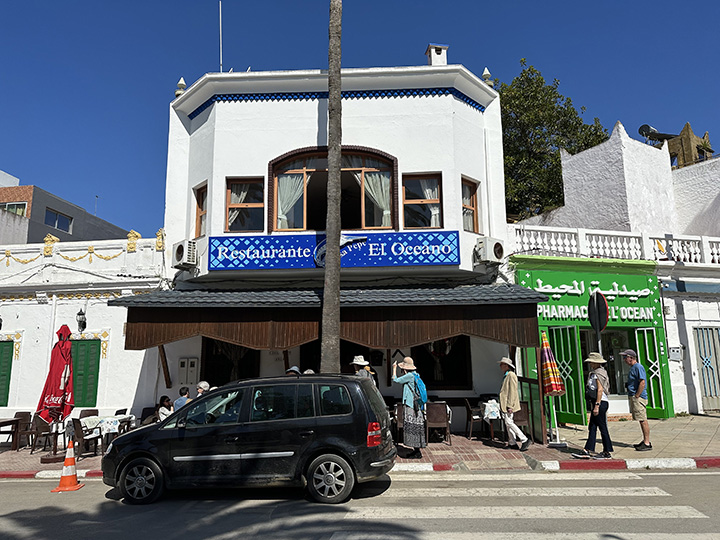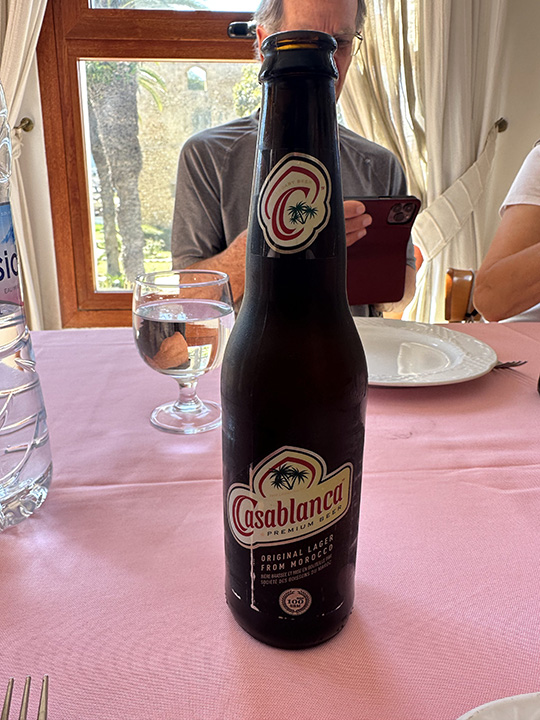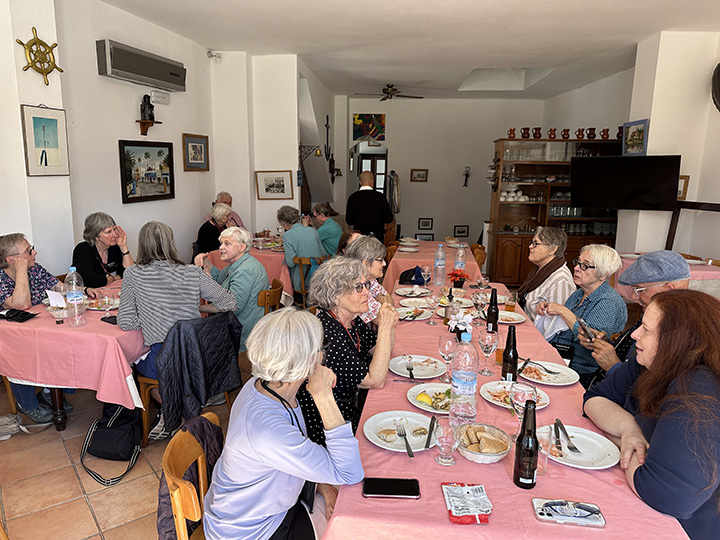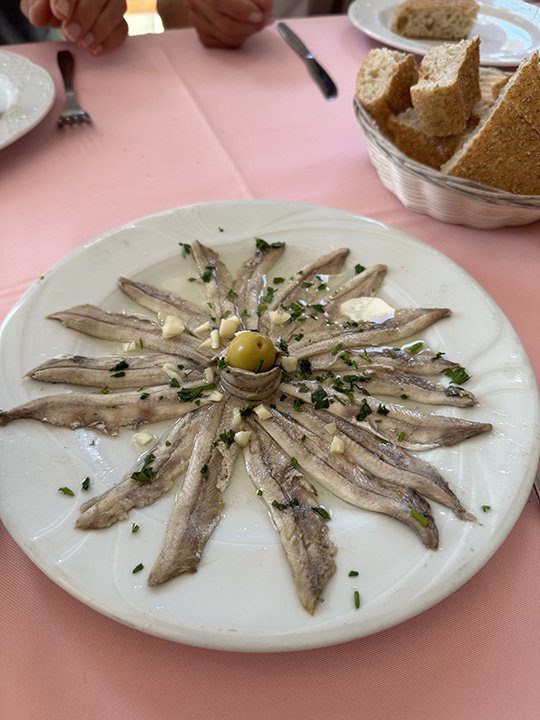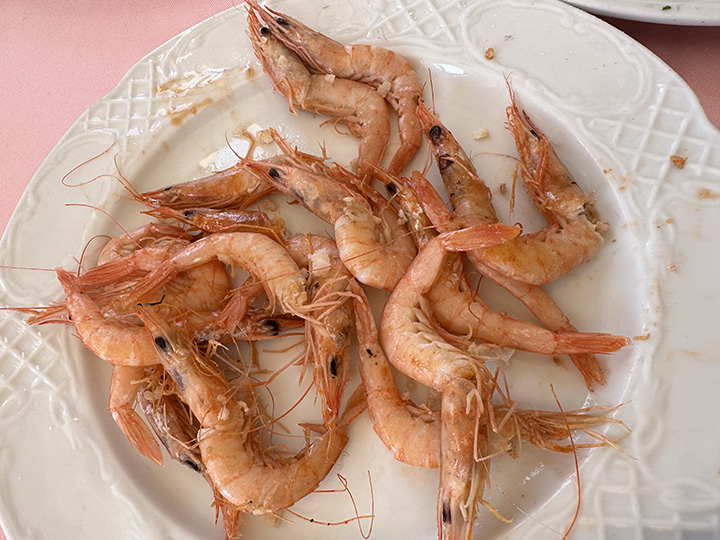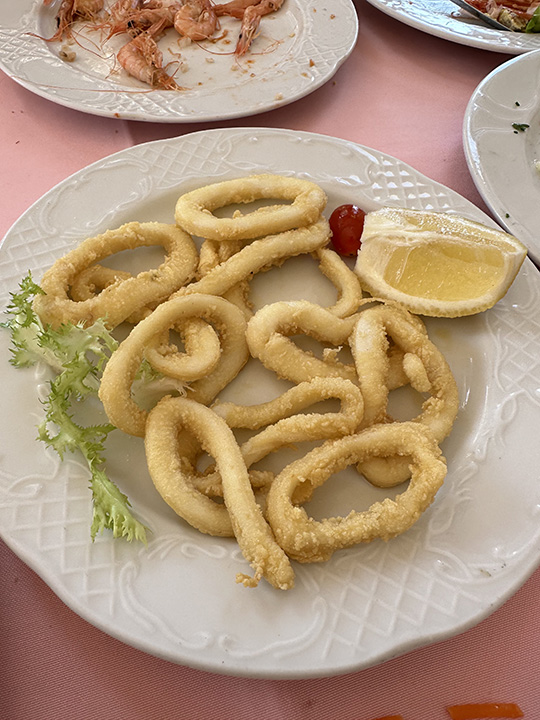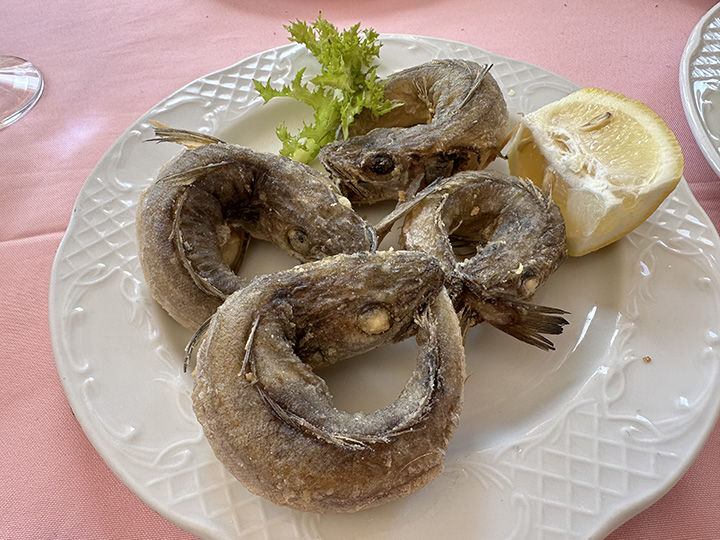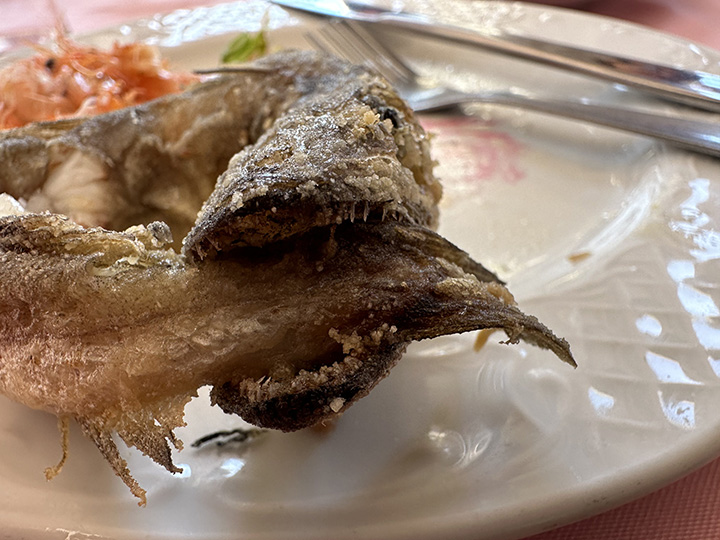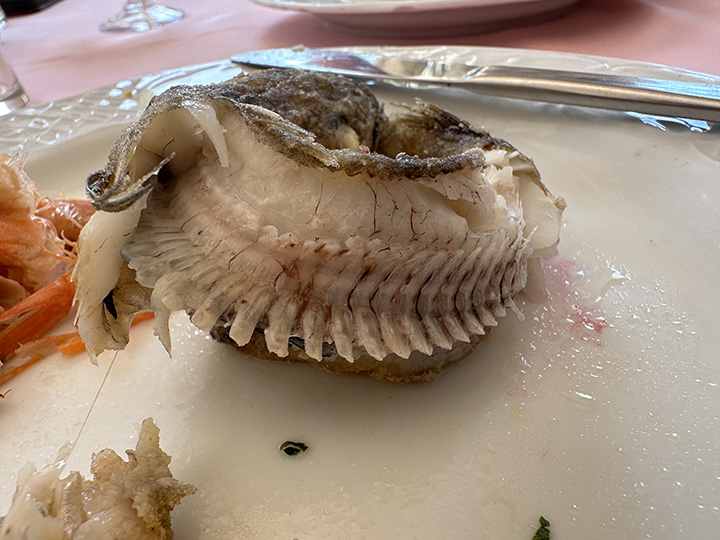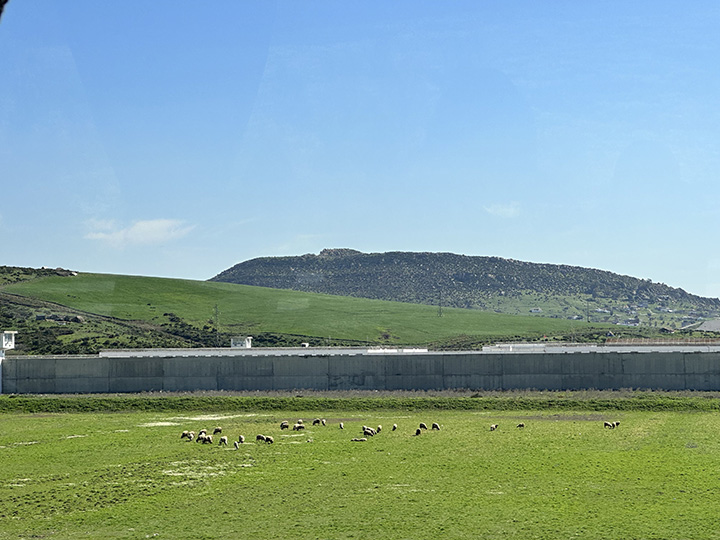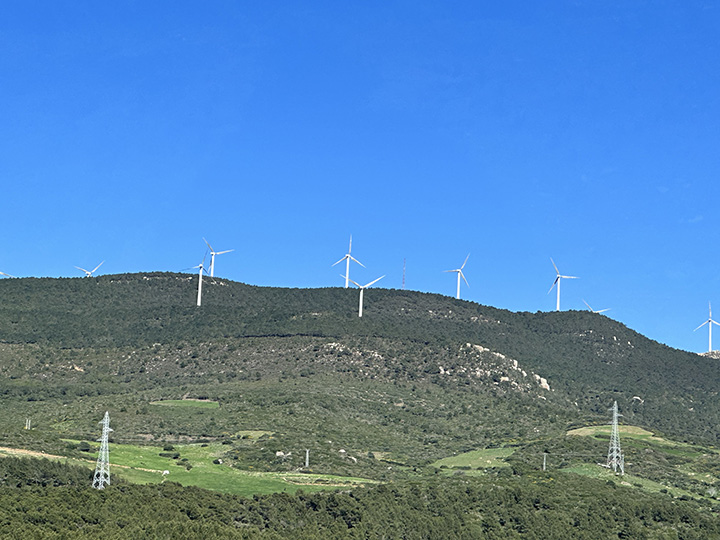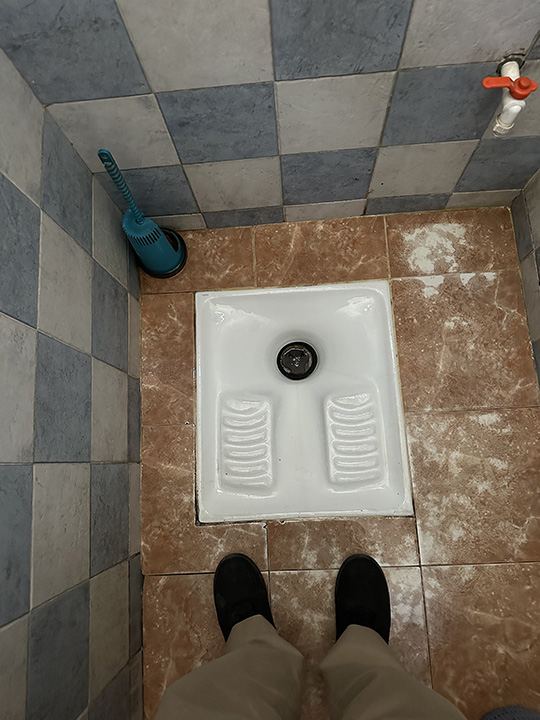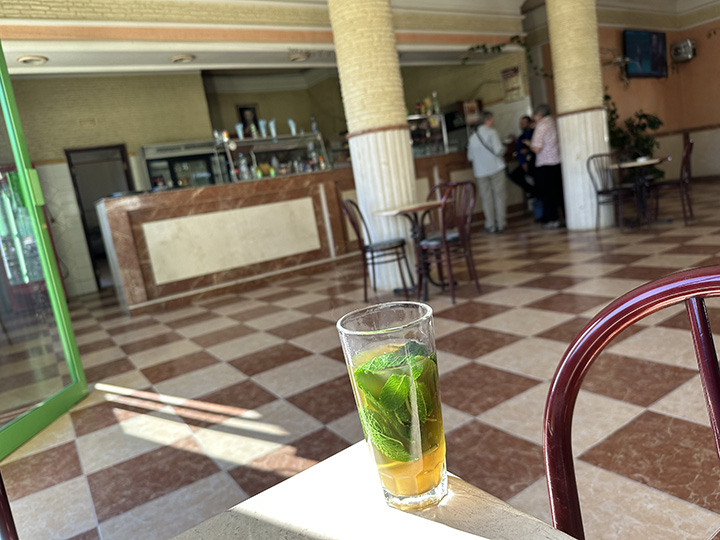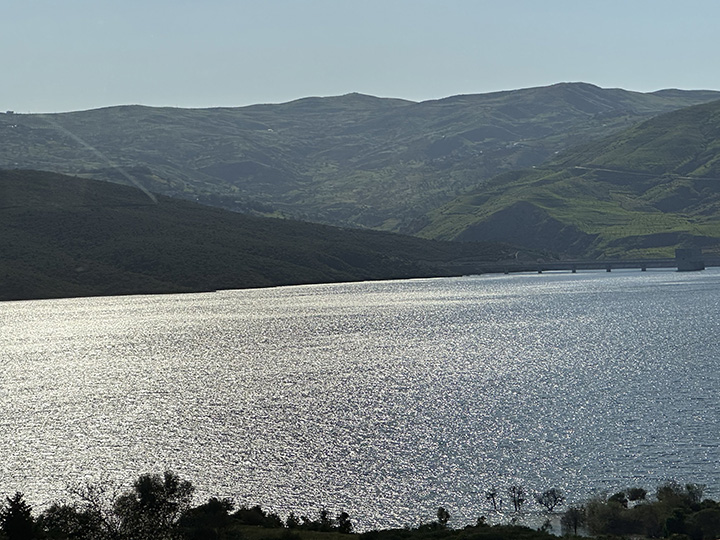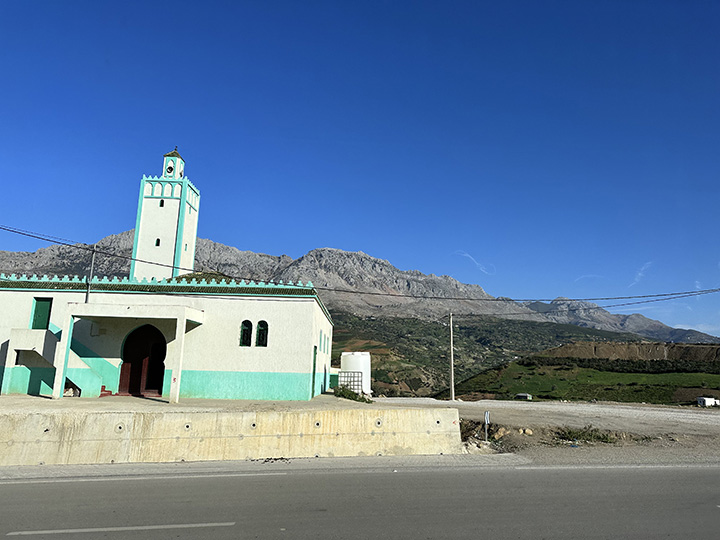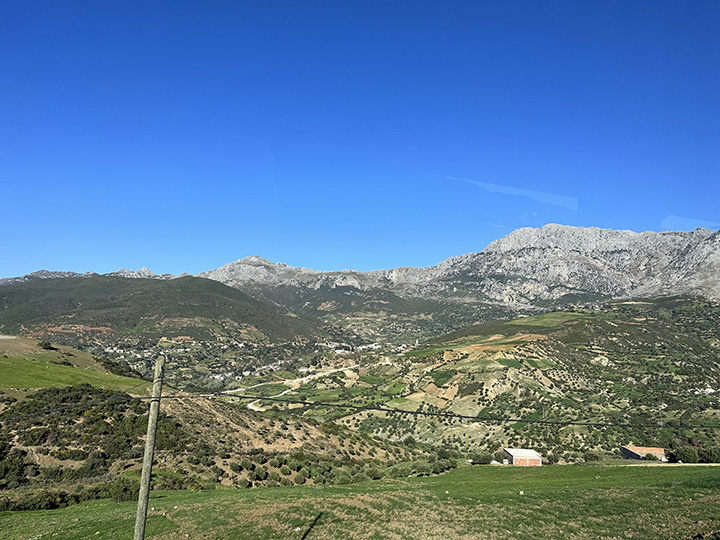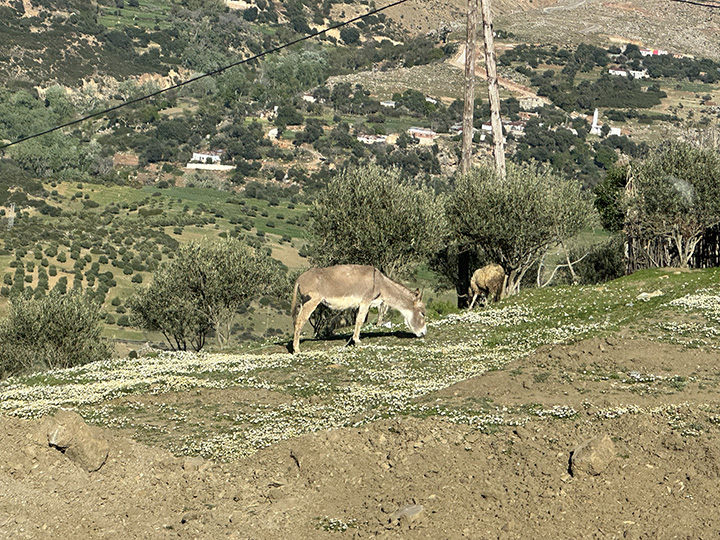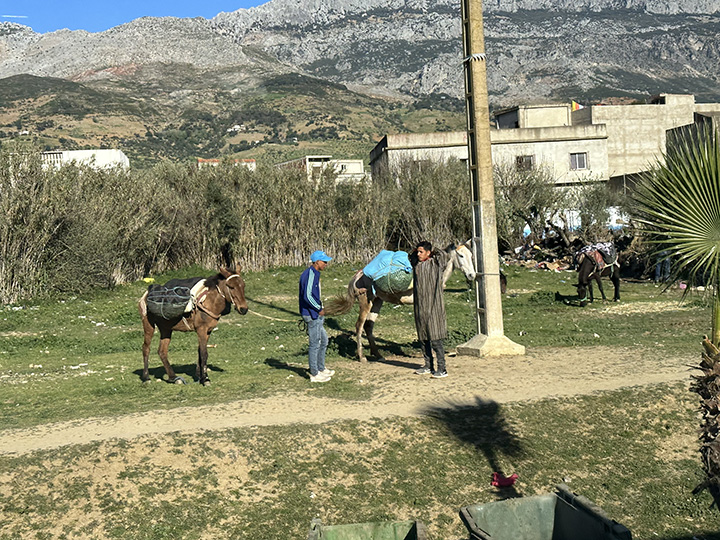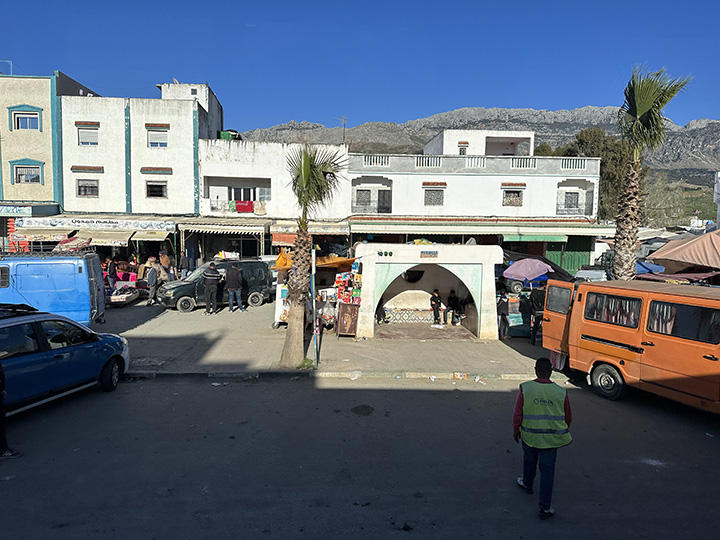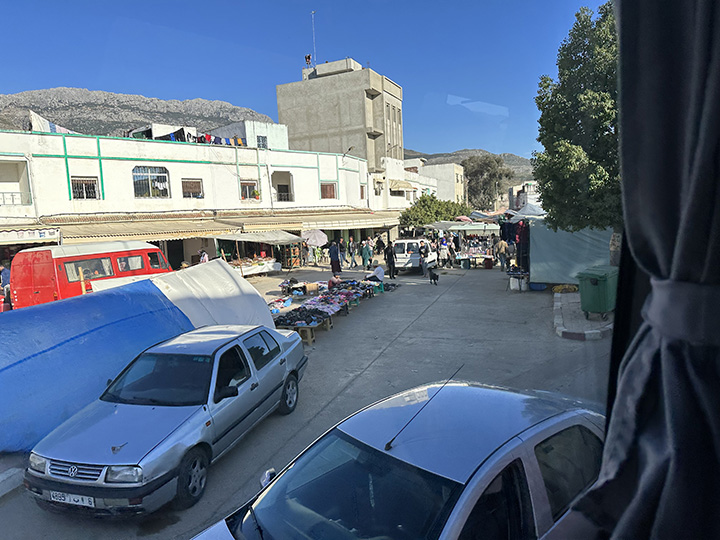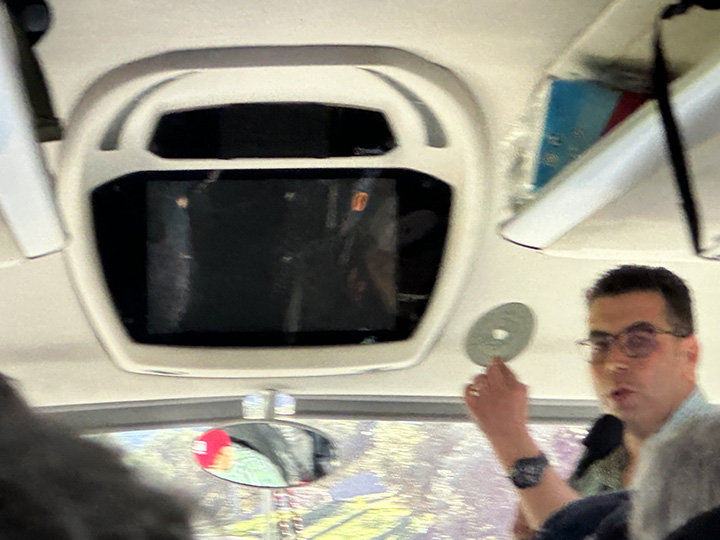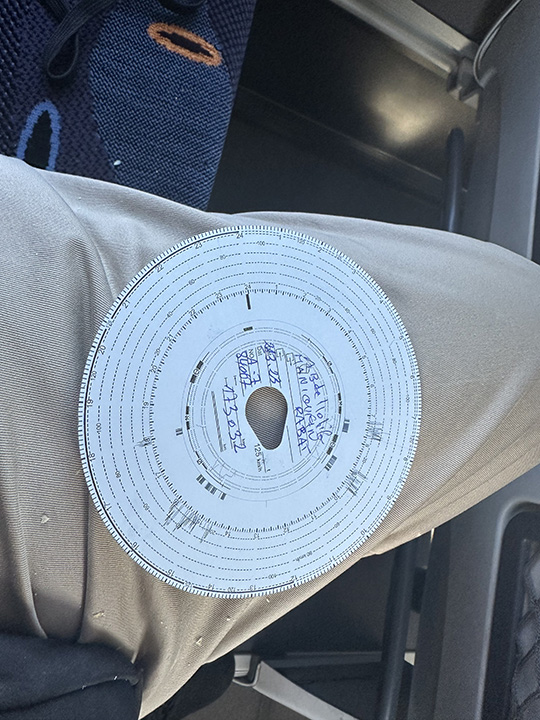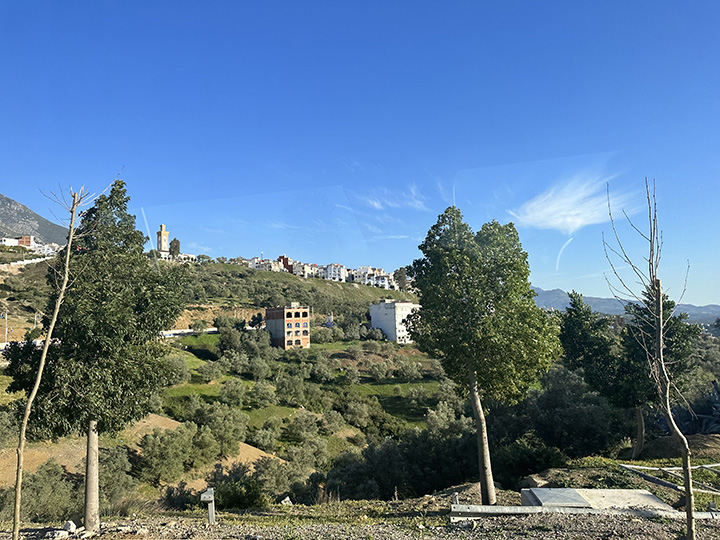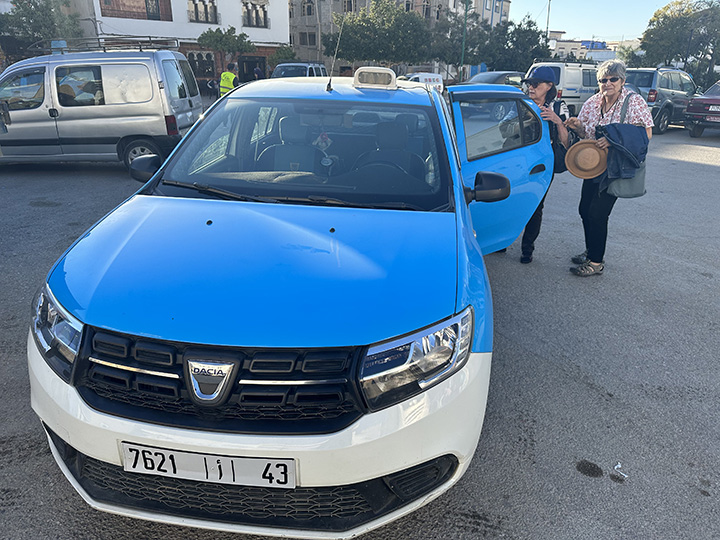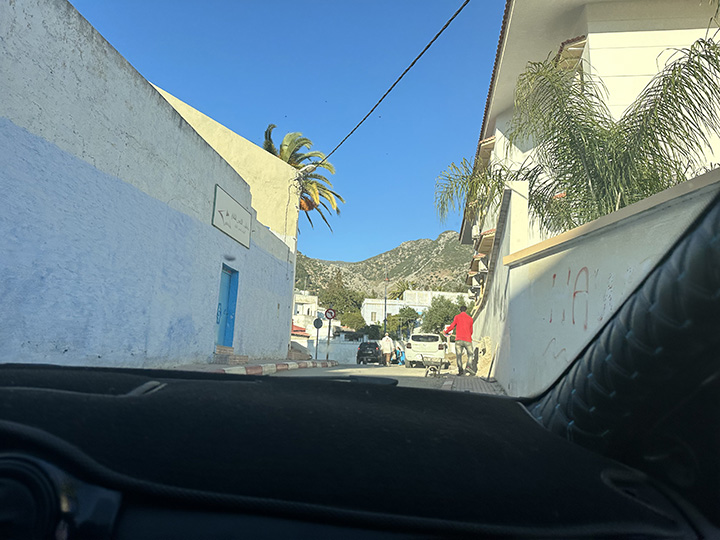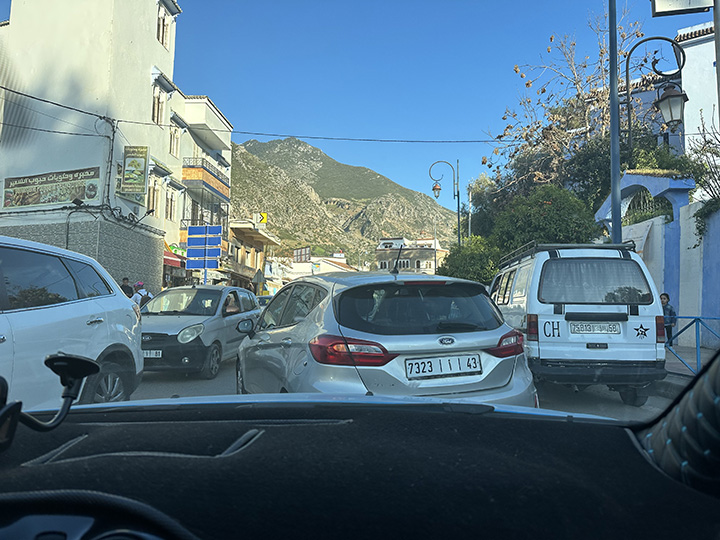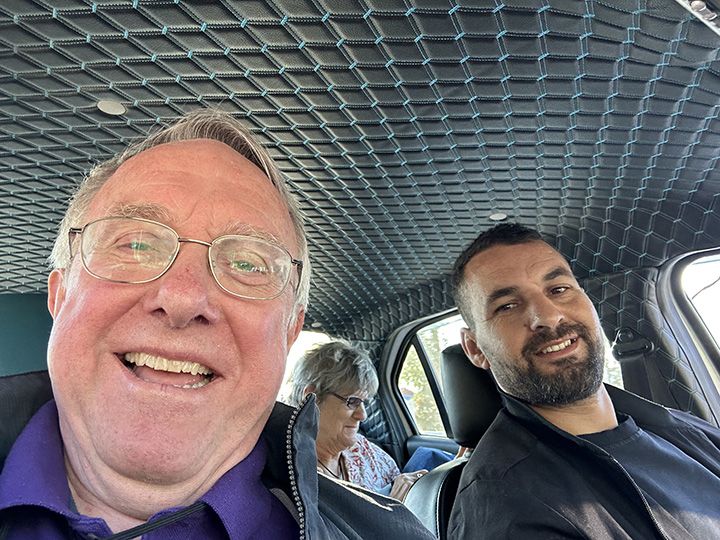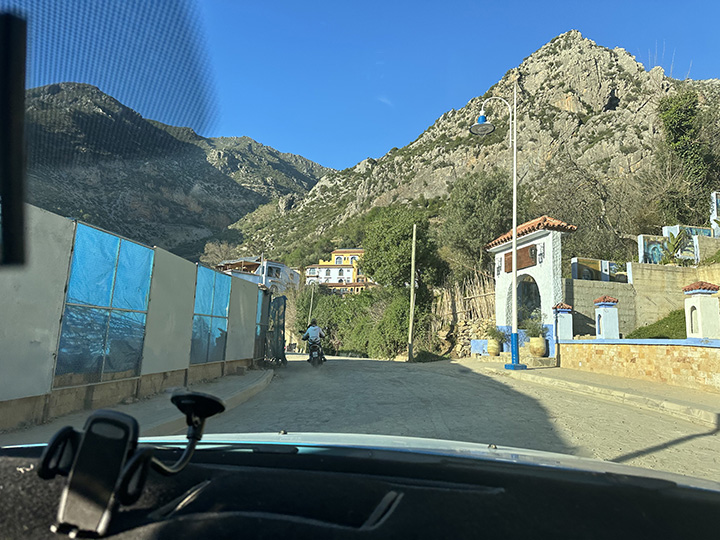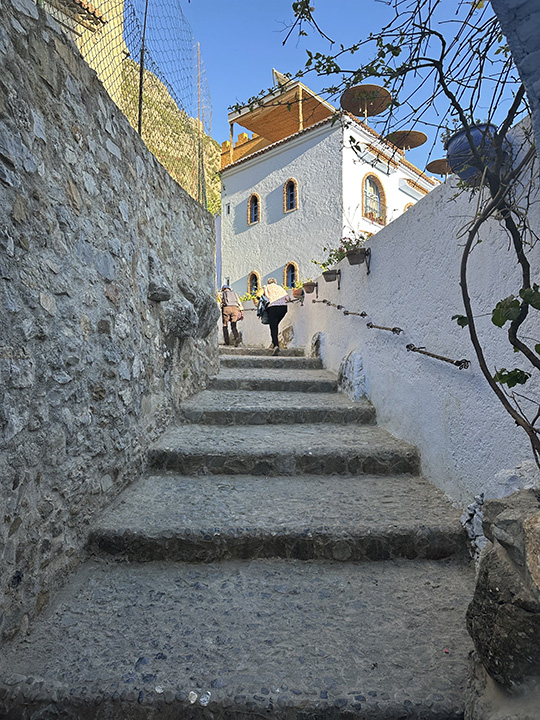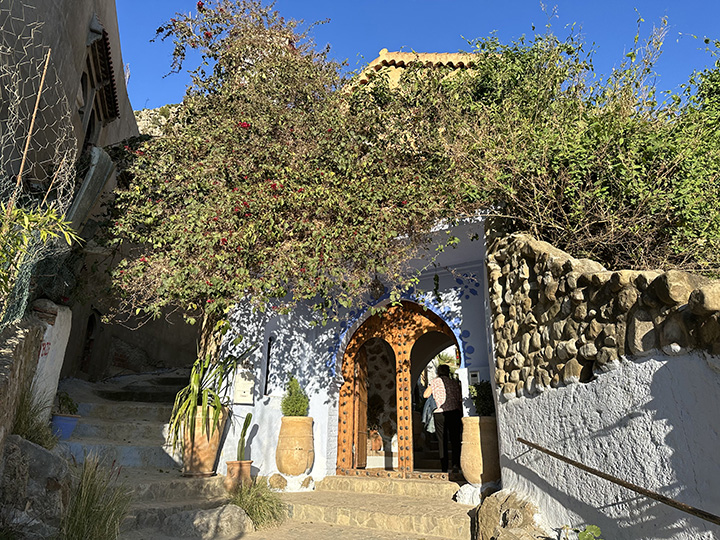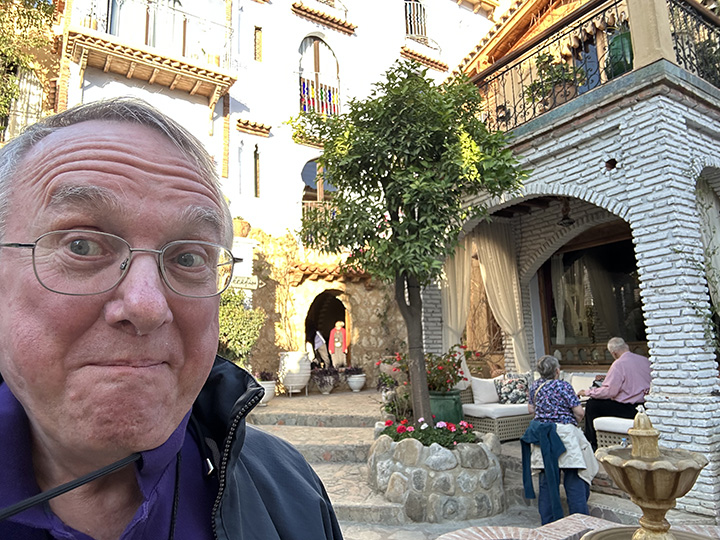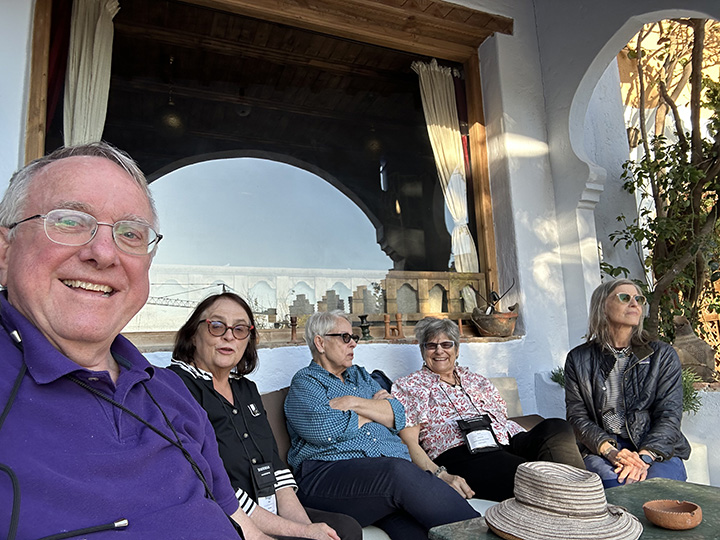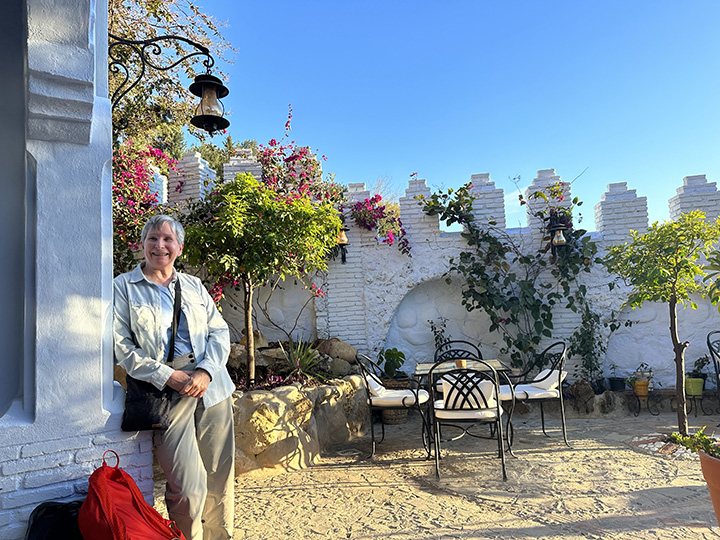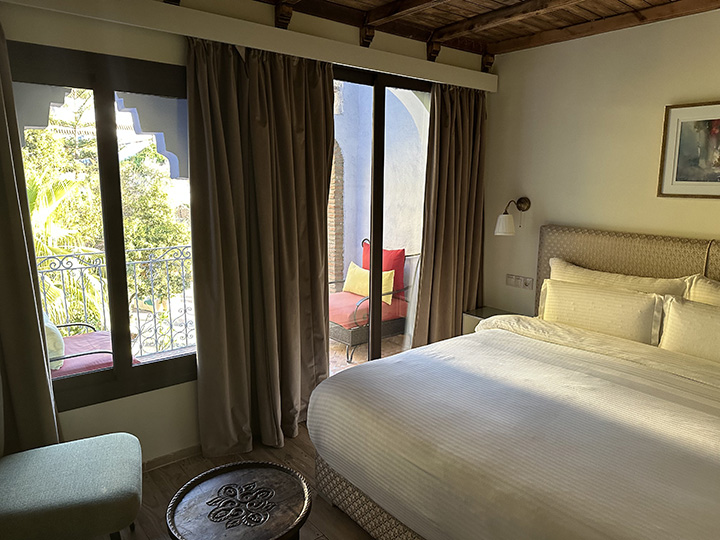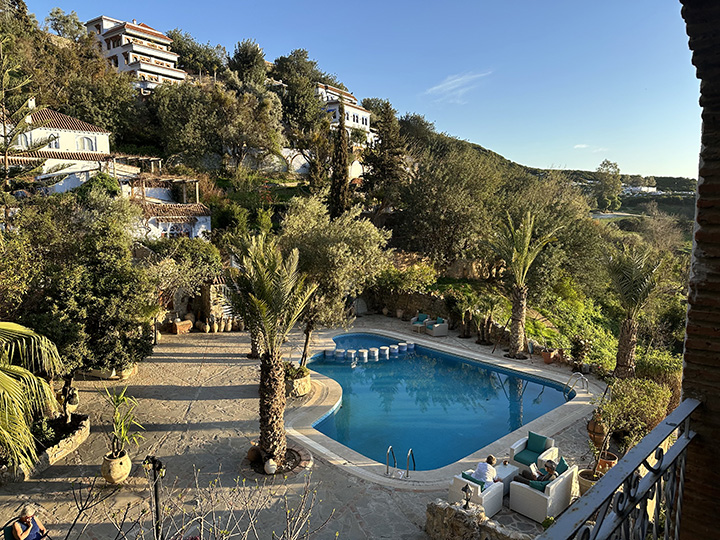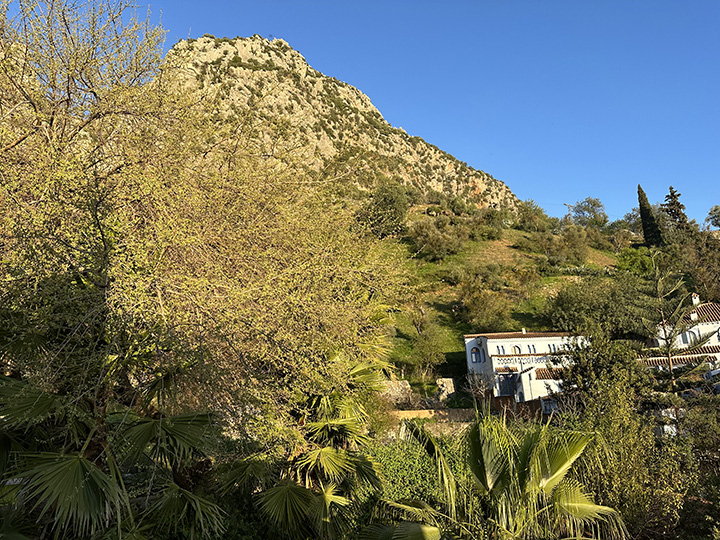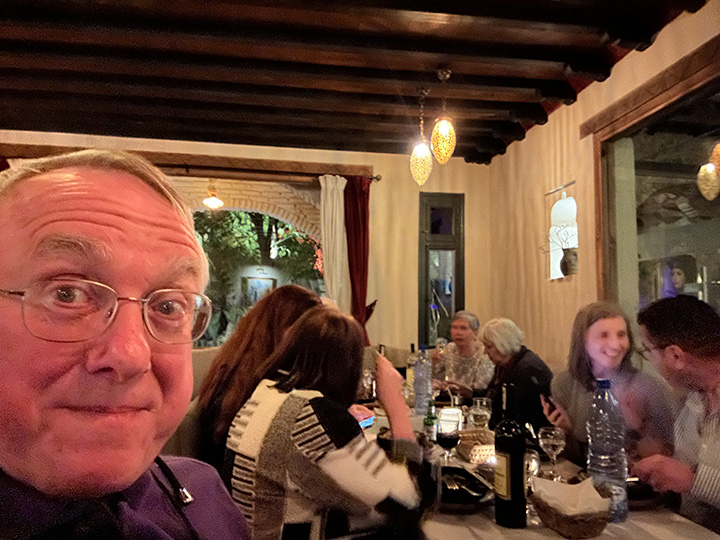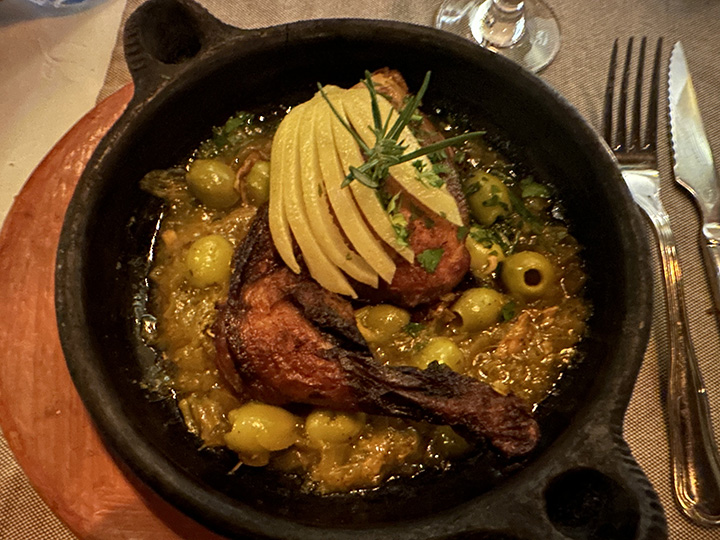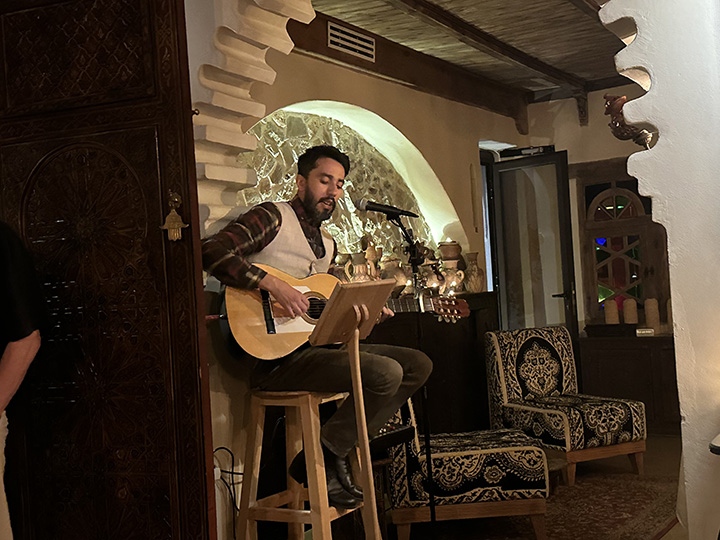|
We spent a lot of time on the bus today as we drove north from Rabat to Tangier, where we didn’t see the rock of Gibraltar, darn it, but instead made a right turn and headed east — up into the Rif mountains. Along the way we visited an artsy town, ate some seafood, and listened to Nabil tell us about various aspects of life in Morocco.
After navigating through a mob of Australians who had eaten all the scrambled eggs on the breakfast buffet, the Road Scholars gathered under the benevolent gaze of King Mohammed VI in the hotel lobby, ready to go for a bus ride.
Bye, hotel.
We're off!
The Grand Theater of Rabat is a gorgeous work of architecture but apparently it has never yet been used for a concert as it remains unfinished. It's been under construction since 2014. Completion was scheduled for 2019, but, well, you know how these things go.
A final look at the cucumber.
I guess I have to say I am pleasantly surprised by Morocco. In my ignorance I was expecting to find a Third World country riddled with poverty, but instead I have found myself in a very progressive place. Things are tidy and clean, the people seem industrious, apparently there is no overly oppressive police or military presence, and everyone is just downright friendly. So far I really like it here.
We passed a wall that seemed to stretch a mile with a guard house about every hundred feet.
The king has asthma and he likes to stay out here in the country.
The royal estate goes on for miles.
What is it? It's a lovely sculpture. I think.
There were lots of cork trees along the road.
Now we are passing by Kenitra. Nabil’s wife and kids are at home over there somewhere.
There's a cell tower.
And there are some palm trees.
And there are farms. Lots of farms. Many farms.
Let's enjoy a rest stop.
I am willing to bet a small amount that the sign translates to STOP.
This roadside market has a nice selection of beer as long as you don’t want any alcohol in it. Islam, you know.
Back on the road we discovered more farms. I thought Morocco was a desert, but it turns out I was wrong. At least about this part of Morocco.
Farmland and a mosque.
And more cork trees. I think.
We are arriving in Asilah.
Asilah is a town on Morocco’s Atlantic coast, south of Tangier. Its old town, or medina, is enclosed by well-preserved 15th-century ramparts and gates, built by colonial Portuguese. The medina is an art hub, known for its murals and Moussem Culturel International d’Asilah, an annual festival.
Bill the tourist is ready to see the sights of Asilah.
The medina is old, but it is artfully decorated. Asilah has not always been an elegant or exclusive travel destination, however. In the 1970s the ancient medina was deteriorating behind its old walls, and the town played no significant role in Morocco. Its rehabilitation, which began in 1978, was strongly tied to the establishment of a cultural festival: the Cultural Moussem of Asilah, named for the French form of the Arabic world mawsim, or festive season. That summer, a yeasty combination of art and music made Asilah into a place where artists and intellectuals could meet and exchange ideas.
The Road Scholars are taking it all in.
You can buy some lovely fabrics in this shop.
Today Asilah is one of the best-maintained towns in the country. Some architectural jewels have been restored, including a section of the city ramparts, and the Raissouni Palace – built in 1909, and now part of the Hassan II International Center – which was transformed into a “palace of culture” with art studios and a hall for cultural gatherings. Still, when the Aga Khan award for architecture recognized the citizen-generated rehabilitation of the beautiful white medina of Asilah in 1989, it came as a surprise.
Nabil asked the guy something about his donkey and he replied, “That’s no donkey, it’s a horse.“
These are some of the murals for which Asilah is famous.
And here are more.
They are everywhere!
The Atlantic ocean is just on the other side of the city wall.
Bill is posing artfully.
It's an artful place.
People dress up their homes here.
Actually, I do believe it is a horse. Tired and undernourished, but a horse nonetheless.
Don is working on his art appreciation.
Nabil is explaining it all.
I told you this was an artsy place.
This guy will sell you some art if you want some.
Now let’s go get some lunch.
In addition to art, Asilah is noted for its seafood, and the Road Scholars are preparing to descend upon a seafood restaurant.
That's it over there.
I wonder if they serve this at Rick's?
We are chowing down.
In Asilah they even serve their food artfully. Those are anchovies. Now I know you are supposed to turn up your nose at the very thought of anchovies and never put them on a pizza, but I had to try some of this. The fish were covered with olive oil and salt with some herbs, and they tasted, yes, a little bit fishy but not unpleasantly so. I wouldn’t order a plate of them, but if you put them in front of me I have to taste, right? And I declare these anchovies not so bad.
The shrimp were delicious too.
And so was the calamari.
But the stars of this show were the dogfish.
So artfully presented. Apparently Road Scholar requested the restaurant not serve them like this because all the teeth were scaring the tourists. I am glad the restaurant refused to listen because how else am I going to get nightmares in Morocco?
They tasted pretty good, actually.
Back to the bus and more farmland. Look! Sheep!
Nabil said Morocco gets over 25% of its power from renewable resources.
Our next potty stop featured traditional toilets.
This rest stop served hot sweet tea the right way. There was no mistaking the mint flavor.
Look, a reservoir. See, this isn't a desert country. Yet.
Moroccan mosques have square-sided minarets.
Now we're in the Rif Mountains.
They have donkeys here.
If you don't have a pickup for hauling stuff, use a donkey.
This small town was having its weekly Wednesday open air market. Nabil said this sort of thing is illegal, but nobody has a better suggestion for providing fresh produce to shoppers, so the authorities look the other way.
Lots of great stuff for sale, but we didn't stop.
Nabil explains how our bus driver along with every other bus and truck driver in Morocco must employ a device that produces a record of his time behind the wheel. It all goes on a piece of paper that looks like a CD.
Our driver must provide this to the authorities after every trip.
Now we are approaching Chefchaouen, our home for the next two nights.
The bus was too big to get close to our hotel, so we all rode taxis the last bit of the way.
The streets are narrow.
And crowded.
Come along for the ride.
Our taxi driver wanted me to take a selfie with him. Friendly guy.
And there is our hotel on the right.
The taxi has dropped us off at the hotel's front steps.
Just look at that!
This is a pretty nice place.
We sat out on the veranda to wait for our luggage to arrive.
Anne likes the place.
Bill has a nice room.
With a view of the pool.
And a small Rif mountain.
Dinner, finally.
I asked Nabil whether this dish had a name and he replied, “chicken with lemon and olives.” Pretty clever, right?
We even had dinner entertainment. A fine way to end a fine day.
|

